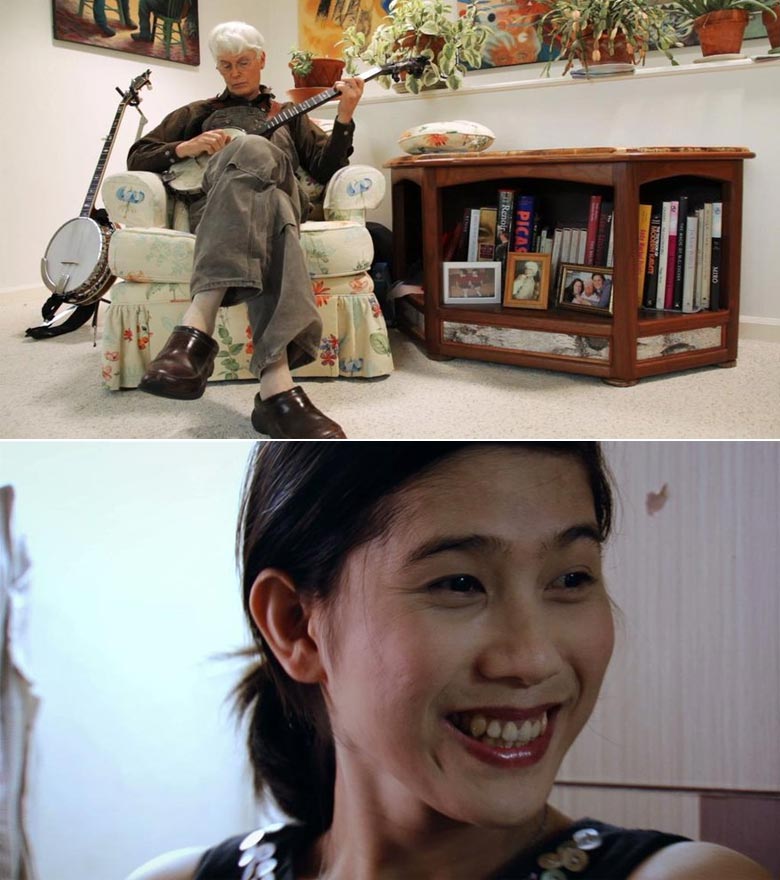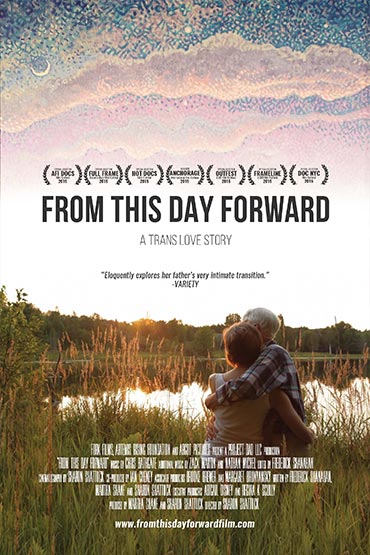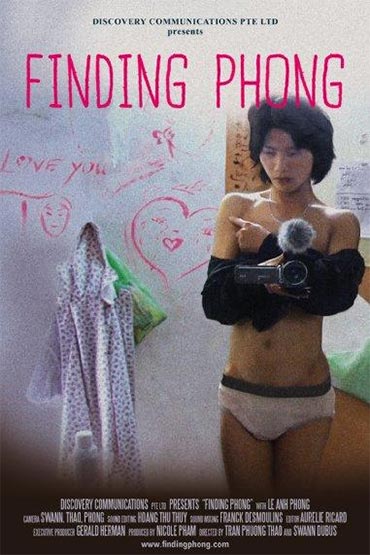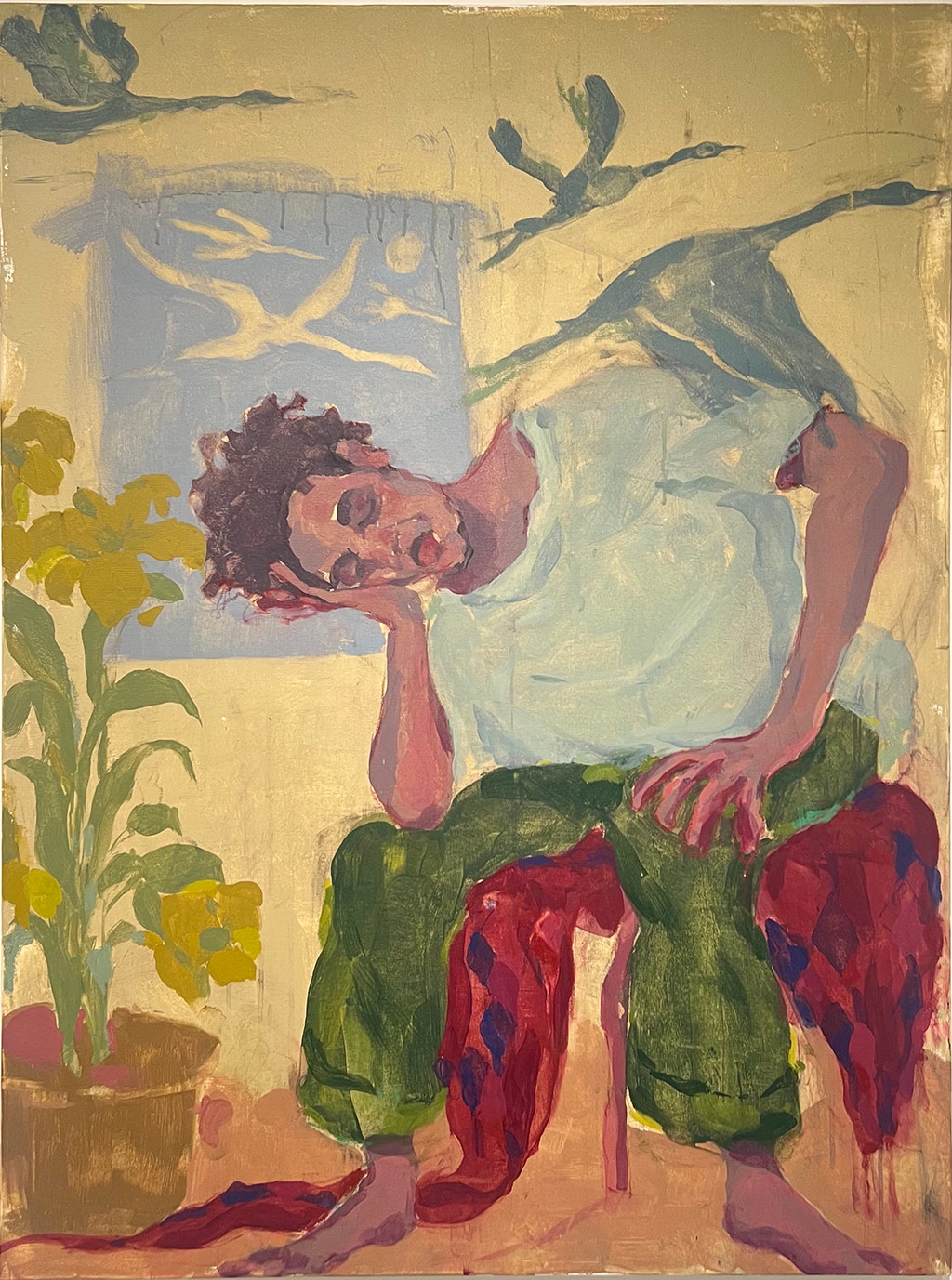
In smaller cities with a less prominent LGBTQ crowd, a Transgender Arts Month might be relegated to only having terrible artwork — and while not every film in Translations is exactly worthy of international acclaim material, the festival was by and large excellently curated.
I decided to spend its final day watching and comparing the two films I had been most excited for: From This Day Forward, which chronicles filmmaker Sharon Shattuck’s attempt to understand her parents as they work through her Dad’s transition, and Finding Phong, an intimate look at a Vietnamese teenager’s complete surgical transformation.

It is to be noted — and probably altogether too predictable — that given the current status of LGBTQ rights, the great majority of films in Translations were documentaries. Documentaries are an easy way to bridge society’s general lack of understanding about given topics, and transgender issues are no different. From a purely numerical standpoint, certain programming at Translations was “successful” and certain programming less so. The festival was bookended by sold-out events: on Opening Night, Major! offered a cut-and-paste look into the life of African-American trans rights activist Miss Major Griffin-Gracy, and Closing Night’s screening of Suited detailed the work of a company which specializes in custom suits for gender non-conforming individuals.
Smaller films, however, saw less of a turnout. From This Day Forward was quite sparsely attended, and Finding Phong‘s theatre was about half-full. This reads as a huge shame, since both films were strong features — whether limited to a Transgender Film Festival or not — and their vast differences, especially when compared back-to-back, speak to the diversity of life experiences within the community.
Both films follow the journey of men transitioning into women, but the two subjects vary greatly in age, economic status, geographic location, cultural upbringing, and the level of acceptance they receive from their loved ones and peer networks. The main similarity they do share — and why both films work well as documentaries — is that both the protagonists are highly personable and hilarious in their own eccentric ways.
From This Day Forward
Directed by Sharon Shattuck
 Using a hand-held and conversational approach to shooting From This Day Forward, director Sharon Shattuck bares the soul of her entire family with seemingly little hesitation. Complex issues are implied; there are recollections of divorce that never came to fruition, and it is hinted again and again that her parents’ relationship is a constant “work in progress”. But they are also confronted head-on. Sharon and her sister lament the fact that Dad decided to “go full-time” when they were still too young to know who they themselves were, and they wonder why he insisted on being such an involved parent, despite how humiliating it was that he chaperoned school trips dressed as a woman.
Using a hand-held and conversational approach to shooting From This Day Forward, director Sharon Shattuck bares the soul of her entire family with seemingly little hesitation. Complex issues are implied; there are recollections of divorce that never came to fruition, and it is hinted again and again that her parents’ relationship is a constant “work in progress”. But they are also confronted head-on. Sharon and her sister lament the fact that Dad decided to “go full-time” when they were still too young to know who they themselves were, and they wonder why he insisted on being such an involved parent, despite how humiliating it was that he chaperoned school trips dressed as a woman.
The question of “Why?” has plagued the household for decades, and Shattuck asks Dad directly on-camera. His response is one of regret, certainly, but primarily of confusion and desperation. Dad never intended to hurt anyone — but he had felt so trapped in his own body that the difference between continuing to masquerade as a man and nurturing his feminine side more openly was literally a case of life or death. His dramatic and sudden shift was also, in part, to convince himself that he could make the difficult leap.
All this sounds dramatic indeed, but much of From This Day Forward is quite joyful. Dad, who later renamed herself “Trish”, is just about the classic hippie parent: doing tai chi on her front lawn; shopping at local co-ops; and making rainbow-colored paintings about the “divine feminine”. It’s easy to see why Sharon’s mother, “who had married a man” and did not in the least find women attractive, chose to make concessions and stay with Trish — because Trish is fascinating and remarkably multi-dimensional.
Having lived much of her life ostensibly as a handsome straight man, Trish has a complex array of skillsets. Many of those traditionally male, such as being an exceptionally talented harmonica and stringed instrument player, or being quite the avid fixer-upper. As a woman, Trish allows herself a wide gamut of aesthetic styles and hobbies, knowing full well that because women manifest in many forms, she need not be stereotypical. This turns Trish into a chameleon — someone who dresses like a woman but will never mind being called “Dad”; someone who, at home, might look like a demure and well-read librarian, but in his conservative Colorado neighborhood, like a local lumberjack.
Still, what makes Trish so fascinating is also what keeps Trish from complete happiness — and this is the sad undercurrent of From This Day Forward. Living in a community that doesn’t fully understand her needs, and even while being in a supportive relationship, Trish feels limited in her expression of womanhood. It could be said, though, that the main message of From This Day Forward is that true love requires negotiation, and one must determine how much grace and understanding one is willing to allow, in order to meet loved ones part-way.
Finding Phong
Directed by Swann Dubus and Tran Phuong Thao
 Finding Phong opens with raw, hand-held footage shot by Phong himself, who cries as he speaks to his mother in a video diary he hopes she will never see. Phong is only in his early teens and greatly loves his parents, but implicitly understands that his quest to become a woman is at odds with the desires of his immediate families Yet it seems that he, much like Trish, believes that fully embracing his womanhood is the only way to save himself from certain death.
Finding Phong opens with raw, hand-held footage shot by Phong himself, who cries as he speaks to his mother in a video diary he hopes she will never see. Phong is only in his early teens and greatly loves his parents, but implicitly understands that his quest to become a woman is at odds with the desires of his immediate families Yet it seems that he, much like Trish, believes that fully embracing his womanhood is the only way to save himself from certain death.
Phong moves to Hanoi to take a job as a restorer of old wooden puppets, and soon visits a Thai doctor to discuss getting a sex-change operation. When he returns to Vietnam, he begins taking female hormones — and this is where a change in mood comes. The hand-held video footage, which had previously been filled with endless sadness and personal conflict, soon becomes rich and joyful. He has sleepovers with female friends that are full of hilariously childish sex talk, and on his own time, he primps endlessly in front of the mirror and inspects his growing breasts as any excited teenager might. Phong may have reached the legal age to give his own surgical consent, but the reality is that he is still a child. It requires conversations with older transgendered individuals for him to realize that — even with his skinny frame and particularly feminine features — he will probably never fully look like a woman, and that completing the transition requires much more than looking the part; it requires a change in attitude.
Phong retains open communication with his mother and older siblings throughout the process of transition. They all seem relatively accepting; though Phong’s mother wonders aloud what sin she might have committed, and states that she would prefer Phong to remain her “son”, she makes no real attempts to stop him. Part of this could be due to Phong’s chipper spirit, which reacts to her complaints with silly gestures and hugs, but Phong’s parents also noticed that he’d been particularly effeminate from a young age.
As the rest of Phong’s family boisterously drink, eat, and make jokes, his father is seen sitting idly by, silently chain-smoking like an old, white-bearded wizard. Is he silent and disapproving? one begins to wonder. Is he too old to hold any opinions at all?
Neither of these hypotheses turn out to be true. In fact, one of the most beautiful parts in Finding Phong is when he finally gives his input. Transgendered individuals have always existed, he states profoundly, but it is only now that modern technology can save them from being imprisoned in their bodies. Male or female, Phong will always be their child, whom they love.
His rare insight speaks volumes to the differences between Southeast Asian society and Western society regarding transgender issues. Phong’s family may not understand his struggle at all, but they show their understanding and love through action. Two of his siblings go with him to Thailand for his surgery — and even though his sister cringes at photos of the modified sex organs, and his brother has a breakdown about how strange the whole situation is, the fact is that they are present.
Finding Phong was screened at the Vietnam National Assembly, inspiring its members to vote to change the Vietnamese Civil Codes to recognize the rights of transgender citizens. This law will take effect in 2017.
My quest in attending this afternoon of Translations was for entertainment, true, but in all honestly, was more important as a crash-course in knowledge, so that I can be a better ally. Sympathetic as I may be in theory, 2015’s Tangerine was the first film centered around transgender individuals since Gael Garcia Bernal’s 2004 performance in Bad Education that I recall making a deep impact on me.
Though Translations marked the eleventh year of Seattle’s Transgender Film Festival, it was certainly my first time hearing about it, and it requires participation in such events that will allow their separation to someday no longer be necessary, but umbrella’d equally under larger film festivals.
Ω






